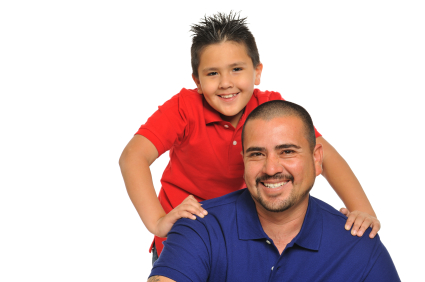Understanding Children’s Emotions: Pride and Shame
Children need to know that we are proud of them.
 Discussions of children’s motivations and behavior too often overlook the importance of feelings of pride and shame. A child’s need to feel proud, and to avoid feelings of shame, is a fundamental motivation, and remains fundamental, throughout her life. It would be difficult to overestimate the importance of these emotions in the psychological development – and emotional health – of our children.
Discussions of children’s motivations and behavior too often overlook the importance of feelings of pride and shame. A child’s need to feel proud, and to avoid feelings of shame, is a fundamental motivation, and remains fundamental, throughout her life. It would be difficult to overestimate the importance of these emotions in the psychological development – and emotional health – of our children.
Shame is our instinctive response to personal failure or inadequacy, especially the public exposure of inadequacy. Embarrassment is a temporary and mild form of shame; humiliation, aloneness, and self-hatred are severe forms of shame.
Children experience feelings of shame when they suffer any social rejection; when they are unable to learn; when they are defeated in competition; when they are bullied, insulted, or taunted; and when they seek acceptance and approval from admired adults but are, instead, subjected to criticism or derogation. When children tell us that they are anxious, they are often anxious about the possibility of feeling ashamed.
Children with difficulties in motor coordination or delays in language development experience shame early in childhood. Somewhat later, difficulties in learning, especially in learning to read, always evoke in children a deep feeling of shame. In childhood, shame leads to avoidance and withdrawal and then, in adolescence, to desperate attempts to alleviate, or get rid of, this painful state of mind. Many experiences that evoke a feeling of shame (for example, experiences of exclusion or ridicule) are uniquely painful, and the feeling of shame, perhaps more than any other emotion, stays with us.
I can still recall, more vividly and poignantly than I would like, moments of shame from many years ago when, as a son (and as a father), I let my parents (and my children) down. Although I have long since been forgiven for these personal failures, my memories are still painful. Thankfully, I am able to put these moments in perspective; they are now more than balanced by moments of pride. In this way, we should also help our children put in perspective their own moments of embarrassment and failure.
When children are successful and feel proud, they instinctively look to others. When they fail and feel ashamed, they look away. This is in the nature of pride and shame. The universal behavior associated with the emotion of shame is concealment; we all attempt to hide or cover up what we are ashamed of. Pride is the antithesis of shame. The feeling of pride is accompanied by an outward movement and a desire to show and tell others, to exhibit or show off. Pride is expansive, both in action and in our imagination. Shame contracts, in our posture (our shoulders fall in and we look downward and away) and in our thoughts and imagination—in our setting of goals and in what we consider possible for ourselves.
A child’s expectation of feeling proud or ashamed therefore decisively influences her choices – those situations she actively seeks and those she avoids. Shame – our emotional response to exclusion and failure – lowers aspirations. Pride — our emotional response to acceptance and success — raises aspirations. The evolutionary psychologist Glenn Weisfeld succinctly explains, “We anticipate pride and shame at every turn and shape our behavior accordingly.”
Especially, children want their parents to share in their pride and to be proud of them. Our children’s feeling – their inner certainty – that we are proud of them is an essential good feeling, an anchor that sustains them in moments of discouragement, aloneness, and defeat. Our feeling that our parents are proud of us is a motivating and sustaining force throughout our lives, and a protective factor in the emotional lives of our children. The opposite is also true. Parental scorn is among the most deeply destructive forces in the psychological development of any child.
When, as parents, we fail to express pride in our children, when we are frequently dismissive, critical, or disapproving, our children will be more vulnerable to emotional and behavioral problems of all kinds. They will live, more than they should, with discouragement and resentment. These feelings will then come to be expressed in some way, perhaps as defiance and rebellion, or as a failure of initiative, or as an inability to sustain effort toward long-term goals.
We therefore need to let our children know, as often as we can, that we are proud of them — for their effort and for their accomplishments. And we should not be afraid to “spoil” them with this form of praise.
(Originally published on PsychologyToday.com)